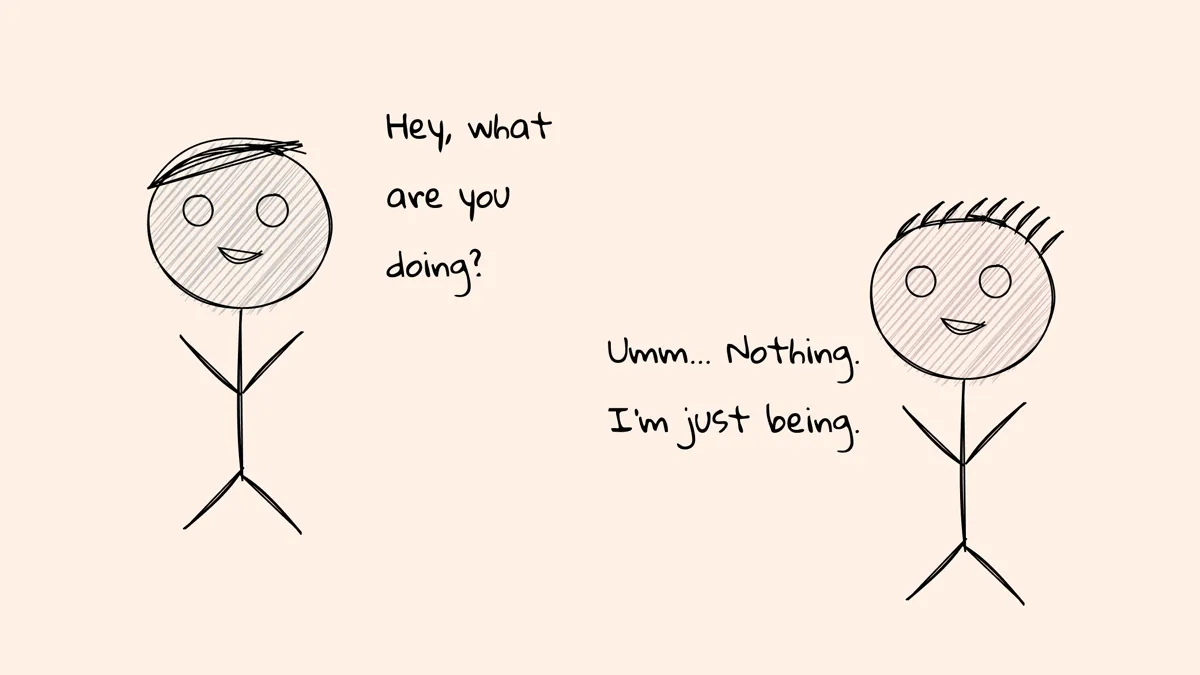
In today's world, we often glorify busyness. Our calendars are crowded with work, exercise, scrolling through social media, and never-ending to-do lists. But neuroscientists and psychologists are now emphasising something unexpected; they claim that doing nothing is actually essential to your brain's health and overall well-being.
Table of Content:-
CHECK YOUR
MENTAL HEALTH

In an exclusive interaction with the editorial team of Onlymyhealth, our expert, Dr Nikhil Nayar, Psychiatrist, Sharda Hospital - Noida, explained the science behind doing nothing and its benefits. Here is what he shared with us.
Science Behind Doing Nothing
When we are not engaged in an activity, our brain enters a state referred to by scientists as the Default Mode Network (DMN). The DMN is a set of regions within the brain that are active during periods of rest. Rather than lying around idle, the DMN assists in processing emotion, consolidating memory, and linking new concepts. In simpler terms, doing nothing enables our brain to rearrange, recharge, and get ready for the next challenge.
Benefits of Doing Nothing
Additionally, Dr Nayar highlighted the importance and benefits of doing nothing. These include:
1. Reduces Stress and Prevents Burnout
Ongoing activity maintains your stress hormones, such as cortisol, at high levels. Intentionally taking time to unwind, such as lying on the couch, daydreaming, or simply gazing out the window, balances out these hormones. This not only eases anxiety but also decreases the possibility of long-term burnout.

Also Read: Would You Break Your Legs to Stand Taller? Exploring The Leg-Lengthening Surgery
2. Increases Creativity and Problem-Solving
Ever had your brightest ideas while showering or on a peaceful walk? That's because downtime allows your mind to freely wander, making connections you may not notice while you're busy. By resting your mind, you create avenues for new views and creative insights.
3. Strengthening Mental Clarity
Similar to how muscles require a break after exercise, your brain also needs downtime to function optimally. Research indicates that individuals who incorporate regular do-nothing moments into their daily lives enjoy improved concentration, clearer decision-making, and better emotional control.

How to Practice Doing Nothing
Doing nothing is not laziness. It's about inserting deliberate pauses throughout your day. Here is how you can practice that:
- Sit in silence without your TV or phone.
- Take a nap or power rest.
- Watch the sky, the trees, or simply your breath.
- Schedule “white space” in your daily planner.
- Even 10 to 15 minutes a day can make a remarkable difference.
Bottomline
When our culture valorises non-stop hustle, it's important to allow yourself to do nothing. But neuroscience confirms it's one of the most productive things you can do for your brain. By embracing stillness, you're not idling away time; you're investing in enhanced focus, greater creativity, and increased mental health.
So the next time you're sitting quietly with no plan, just recall that your brain is actually working hard, healing, replenishing, and gearing you for what comes next. Sometimes the best move is to simply stop.
Also watch this video
How we keep this article up to date:
We work with experts and keep a close eye on the latest in health and wellness. Whenever there is a new research or helpful information, we update our articles with accurate and useful advice.
Current Version
Sep 09, 2025 15:40 IST
Published By : Tanya Srivastava